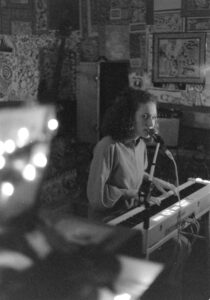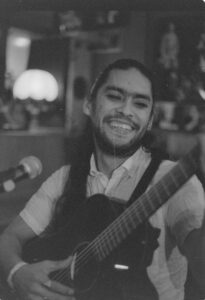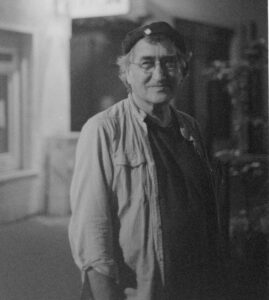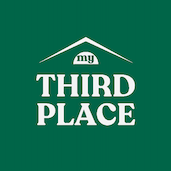The UK is facing a loneliness crisis, and making friends is harder than ever.
Between jobs and the humdrum of daily life, it’s hard just to find time and energy to socialize. Then, where are we supposed to meet new people? Destinations beyond work or home — “third places” –where it’s easy to breathe, linger, and connect, are rarer than ever.
Sure, there are plenty of communal spaces where we’re among strangers and could make friends: gyms, libraries, coffee shops, malls, and pubs. You name it! But they’re functional. They serve their purpose with little opportunity for spontaneous meetings or community.
Neruda is special. A nest. A home for the socially homeless or new in town.

On its face, It’s a music bar. They book shows and have people on tour occasionally, but most nights, it’s an open stage. There’s a mic for singers, piano, guitars, bass, and a handful of drums littering the center hearth, waiting for anyone to pick them up. Around 21:00, people wander in, and before you know it, there’s live music.
You might be thinking that sounds like karaoke. It’s not.
Karaoke comes with backtracks, over-loud speakers, and singers who are out of tune because they can’t hear themselves. Here, real musicians play real music together. Singers break your heart. Guitar solos leave you saying, “fuck yeah.” Even novices join in the fun, happily keeping the beat on a drum or shaker. The music is raw, unrehearsed, and intimate.
But that description misses a lot. The true magic is in how Neruda brings people together.
There are so many regulars that it feels like an extended family. We recognize each other by name or, at the least, by face. There’s familiarity in how we greet each other–asking about lives, children, jobs, or relationships. It’s normal to see someone you’ve spoken with only once and pick up the conversation right where you left off.
People celebrate birthdays there often. It’s the kind of place where, even if you’re new, someone’s bound to pull you into the circle, offer a slice of cake, and ask how you’re doing.
Friendships at Neruda don’t end when you walk out the door, either. I celebrated Christmas with people I met there, met two girlfriends, started a pen-and-paper gaming group, and spent lazy Summer afternoons by the lake with friends from the bar. It’s a community where relationships grow, deepen, and spill into other areas of your life.

It’s hard to pinpoint what makes Neruda unique.
For starters, it’s not a corporate chain. The room looks like somebody’s home: warmly lit, cluttered with knick-knacks and unusual art. You could find the furniture at a second-hand shop. None of it matches, and the cushions were probably comfier years ago. Just behind the bar, there’s a nod to the pub’s multicultural clientele: a wall of money from around the world.
The owner, Figrit, is certainly part of it too. He’s usually there until close, sipping red wine from a large shot glass and shooting knowing smiles at everyone. He even looks a bit like John Lennon.

I’ll never forget his kindness. Shortly after I moved to town, I was homesick and couldn’t sleep. Instead of suffering insomnia, I went for a walk and, by happy accident, found myself in front of Neruda. Figrit was closing for the evening, but noticed something was wrong. So he unlocked the door, beckoned me inside, and offered me free wine and a listening ear.
The size of the bar helps, too. It’s tiny, no larger than an average suburban living room. The tight quarters do something to you–there’s no choice but to talk, to break through that invisible barrier we’re all used to. It’s the only bar I’ve ever been where it’s normal to start conversations with strangers.
Neruda reminded me of the value of human connection. It’s not just about making friends. It’s about feeling part of something larger. When loneliness creeps in, I know I have a place to go full of familiar places and friendly conversation. It’s a refuge from the stress of work and a place to unwind and let my guard down.
Maybe it’s the proximity, the warmth of the room, or the mixture of music and vulnerability that makes you feel like you belong. But everybody does.
The Need for Third Places in the UK
Churches used to be the quintessential third place. People used to gather not only for religious practice, but for connection. As religion declined, these communal spaces weren’t properly replaced. Social media tried, but virtual platforms can’t replace face-to-face conversations.
At the same time, we’re facing a loneliness epidemic. This is no joke. The World Health Organization reported that loneliness can be as dangerous as smoking 15 cigarettes a day, shortening life spans and agitating mental health issues. The problem is so severe that the government appointed a Minister of Loneliness in 2018, even before the pandemic plunged the world into collective isolation.
So, where do we turn to rebuild connections in a society that’s more isolated than ever? Without third places, casual everyday opportunities to foster new relationships are diminishing. Pubs used to be a staple, but most feel sterilized. You go, talk to the same people you came in with, and go home without meeting anyone new.
The Neruda’s of the world are special, and we need your help finding them. They offer something more than a place to grab a drink. Rather, they’re environments where people can genuinely connect, be vulnerable, and build lasting friendships. To live happier and fuller lives, we must nurture more third places.
Do you have a third place you love? Add it to our listings, and help us bring communities back together.
Photos produced by Felix Horn




Comments